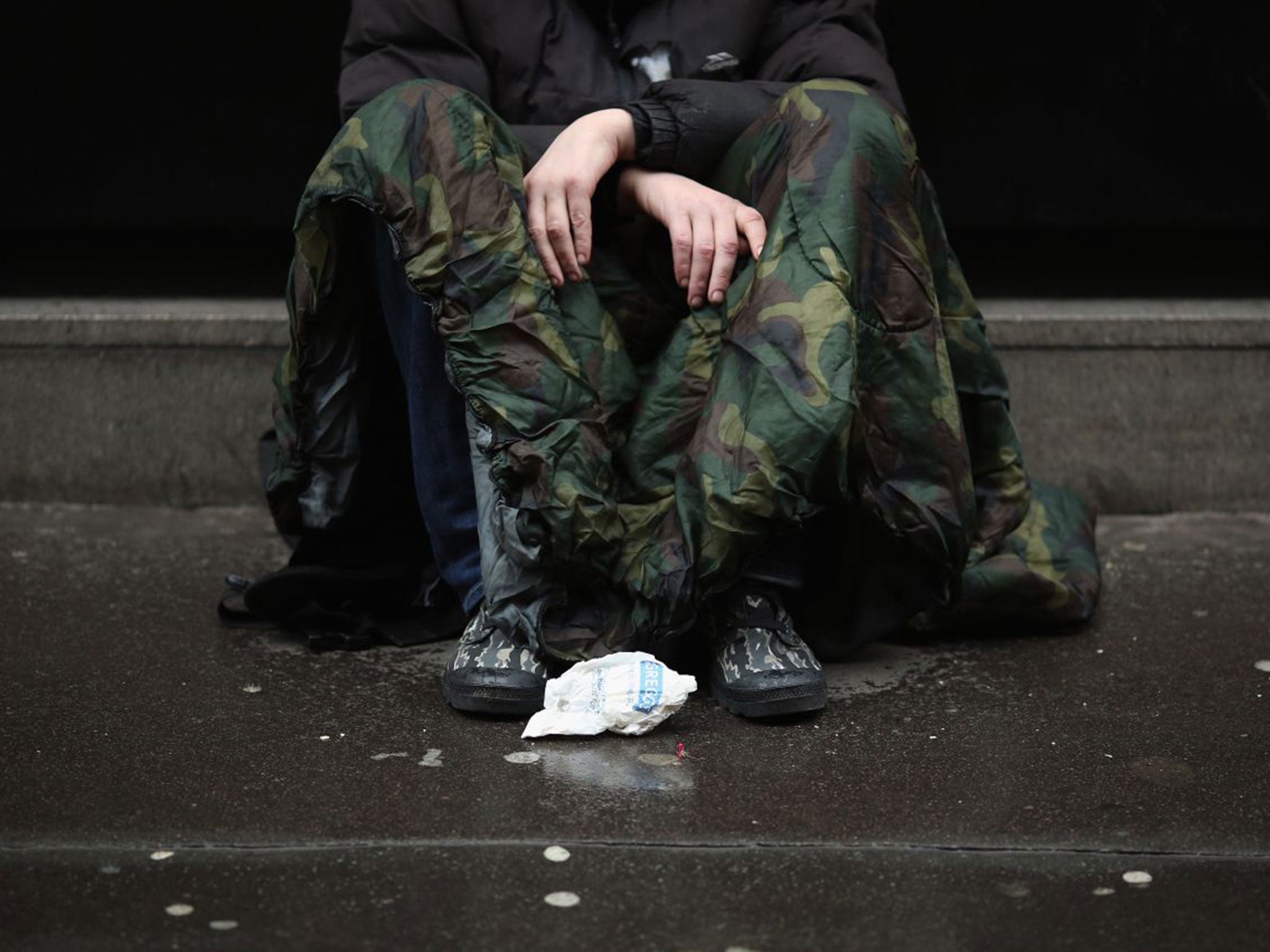A homeless person dies every two weeks in London, figures show
'This is nothing short of a national scandal. These deaths are premature and entirely preventable'

Your support helps us to tell the story
From reproductive rights to climate change to Big Tech, The Independent is on the ground when the story is developing. Whether it's investigating the financials of Elon Musk's pro-Trump PAC or producing our latest documentary, 'The A Word', which shines a light on the American women fighting for reproductive rights, we know how important it is to parse out the facts from the messaging.
At such a critical moment in US history, we need reporters on the ground. Your donation allows us to keep sending journalists to speak to both sides of the story.
The Independent is trusted by Americans across the entire political spectrum. And unlike many other quality news outlets, we choose not to lock Americans out of our reporting and analysis with paywalls. We believe quality journalism should be available to everyone, paid for by those who can afford it.
Your support makes all the difference.A homeless person dies every two weeks in London, figures have revealed, prompting urgent calls for the government to carry out a review into rough sleeper deaths and improve mental health support.
A survey of outreach services by charity St Mungo’s reveals 158 rough sleepers died in the capital between 2010 and 2017 – a figure campaigners have branded “nothing short of a national scandal”.
Analysis of data shows a steep increase in the proportion of people dying who have mental health issues, which rose from 29 per cent in 2010 to 80 per cent in 2017. The outreach survey also shows 70 per cent said access to mental health services had become harder over the last five years.
It comes after the number of people sleeping rough in England hit a record-high earlier this year – after a 73 per cent increase over the last three years.
Petra Salva, director of rough sleepers at St Mungo’s, told The Independent she believed the figures were an underestimation, with some being “missed altogether" because the government does not record homeless death statistics at a national level and local authorities are not required to record them.
“Anecdotally, our team knows there is an increased risk in people dying when they sleep rough. Often when I come into work I am told – it happened today – of another death. And we know that a lot of them are preventable,” she added.
“We know that people with mental health needs – whether diagnosed or undiagnosed – are likely to end up sleeping rough for longer – and that’s mainly because the help isn’t fast enough. The truth is that there’s not enough help out there.
“We’ve definitely seen a correlation between cuts to mental health services and the rise in homeless deaths. We’re not getting to people quickly enough – some people are being missed altogether. There’s a misconception that it’s a lifestyle choice, and that people choose to live like this.”
A report published by the charity today shows 64 per cent of outreach services said access to emergency accommodation for people sleeping rough had got harder compared to five years ago.
Seven in 10 meanwhile said access to mental health services for people sleeping rough had got harder compared to five years ago.
More than half (63 per cent) of respondents were aware of someone who had died while sleeping rough in their local authority area in the last year - yet only 23 per cent had any experience of a review being carried out in their area following the death of someone sleeping rough.
Responding to the findings, Howard Sinclair, St Mungo’s chief executive, said: “This is nothing short of a national scandal. These deaths are premature and entirely preventable.
“Rough sleeping has been rising dramatically since 2010 and we are pleased the government is finally recognising and responding to increasing need. The forthcoming strategy presents a vital opportunity to make sure no one else dies as a result of sleeping rough.
He called on the Prime Minister to “follow through on her commitment” to end rough sleeping by making sure all parts of the public sector play their part, especially the health, justice and welfare systems.
“We also know that there are things the government can do today to help stop this scandal, including reviews into deaths, removing the threat of funding reform for homeless hostels, and quicker decision-making around immigration for people stuck on the streets,” he added.
Official government data shows that on any given night in autumn last year, 4,751 people were recorded sleeping on the streets, a figure that has more than doubled since 2010.
Campaigners have described the rise as a “catastrophe” following continual rises since 2010, urging that evidence shows how the problem can be fixed and calling on the government to take “swift action” to tackle the problem.
A spokesperson for the Ministry for Housing, Communities and Local Government said: “Nobody should ever have to sleep rough and every death on our streets is one too many. We are determined that those living on the streets, as well as people at risk, get the help they need now.
“Only earlier this month we announced a £30m funding package to help the worst affected councils boost the immediate support they are able to offer.
“In total, we are investing more than £1.2bn to tackle all forms of homelessness, and are working with charities, including St Mungo’s, who sit on the Secretary of State’s Rough Sleeping Advisory Panel, on our forthcoming strategy that will help us end rough sleeping altogether by 2027.”
Join our commenting forum
Join thought-provoking conversations, follow other Independent readers and see their replies
Comments